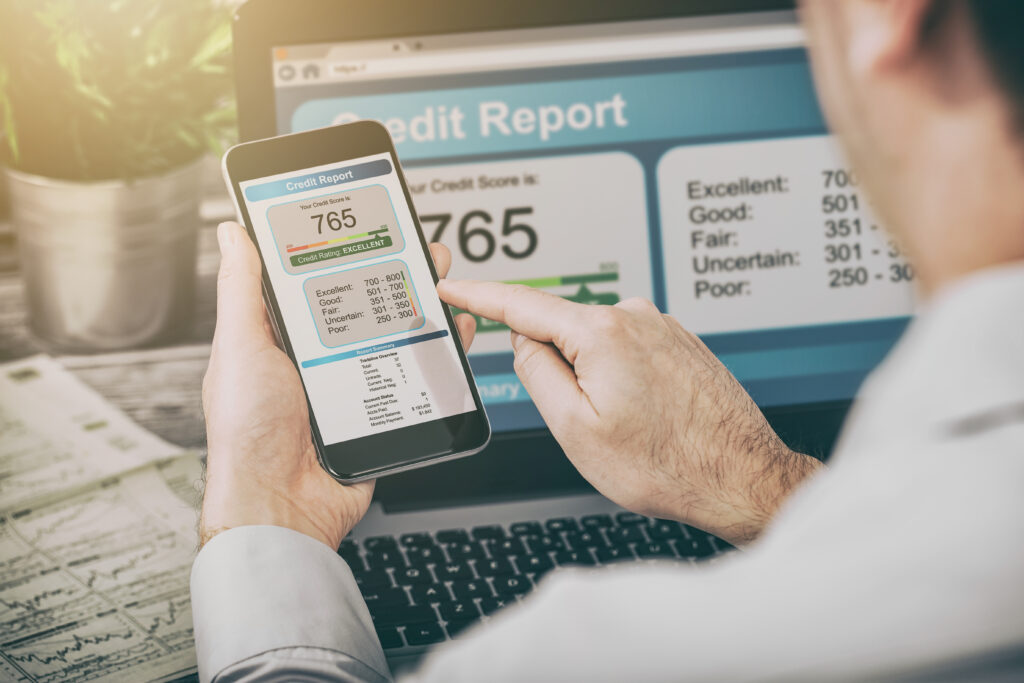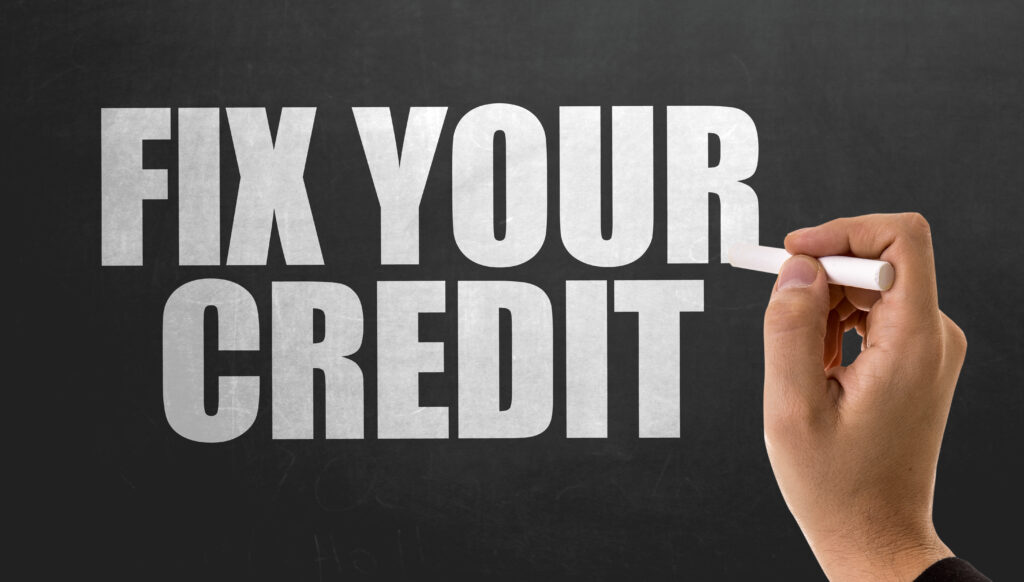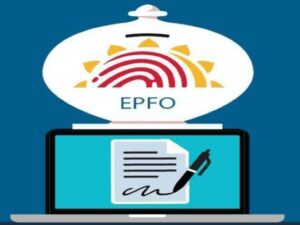What is a Good CIBIL score?
| Score | Creditworthiness | Chances of Approval |
| Less than 600 | Bad | Low |
| 600-649 | Doubtful | Tough |
| 650-699 | Satisfactory | Good |
| 700-749 | Good | High |
| 750-900 | Excellent | Very High |

How to check CIBIL score?
It is important to know your CIBIL Score before availing a secured or unsecured loan. Though Finnable does not ask borrowers for their CIBIL score, it helps in having one at the time of application. So how exactly do you check your CIBIL Score?
To know what your CIBIL Score range is, you need to know the following things:
- Repayment History: To start calculating your CIBIL Score range, you will need to know your repayment history. The repayment history is how successfully you have managed to repay your debt. It accounts for about 35% of the CIBIL score.
- Credit Balance and Credit Utilisation: There are two factors to consider here. One is knowing how much credit you have used. The second is the credit balance against your loan and credit card available. If you have utilised the maximum of your credit limit, the lender would be hesitant to offer you an instant loan. 30% of your CIBIL Score comprises these factors.
- Duration of Credit: The repayment tenure, as well as the time required to repay the credit, contributes to 15% of the CIBIL Score. If you have availed a loan over a long period and successfully repaid what you owed, it would positively impact your CIBIL Score.
- New Credit: For every inquiry about a credit card or an instant loan application that you make, your CIBIL Score gets affected. It also contributes to 15% of the CIBIL Score.
- Credit Mix: The last 10% is the confluence of various credit and loans that you have in your name. If your credit mix includes any personal loan, secured loans, credit card, you are considered to have a healthy credit mix.
Benefits of a good CIBIL score
Having a good CIBIL Score while availing a loan is important. There are various benefits of knowing your CIBIL score:
- Low-interest rate: High CIBIL score indicates that the borrower has repaid all loans on time and is trustworthy. This gives lenders confidence and prompts them to offer comparatively lower interest rates.
- Quick approval: The chances of getting a loan approved quickly are much higher with a good CIBIL Score as it is an indication that the borrower has a low default rate and a good repayment record.
- High loan amount: If the borrower has a high CIBIL Score, the probability of getting a loan with a higher amount is good.
- Longer repayment tenure: All loans have a repayment tenure as set by the bank or financial institutions. Though lenders know that there is some amount of risk involved when it comes to a long loan tenure, with a good CIBIL Score, the borrower can get a longer time to repay his loans.
If you are applying for a personal loan and do not have a good CIBIL Score range, there are ways on how to improve CIBIL score. You can start by paying your dues on time, utilising the credit available, and clearing off old debts before availing a new one.
At Finnable, we offer personal loans to borrowers without a CIBIL Score. They can avail a personal loan, a wedding loan, or a travel loan instantly. However, if the applicant has an excellent CIBIL Score, Finnable offers personal loan with comparatively better interest rates and with loan tenures that would best suit the applicant.

How to Maintain a Good Credit Score?
A good credit score can help you access loans quickly and at competitive rates. To make sure that your credit score stays health and appealing to lenders, ensure the following aspects:
- Pay your bills on time
Timely payment of your bills, including credit card bills, loan installments, and utility bills, is crucial. Late payments can negatively impact your credit score. Finnable provides convenient online payment options and automatic payment services to help you stay on track with your loan repayment.
2.Decease your credit utilisation
Credit utilisation refers to the percentage of your available credit that you are currently using. Aim to keep your credit utilisation below 30% of your available credit limit.
3.Maintain a healthy credit mix
Having a mix of different types of credit, such as credit cards, loans, and a mortgage, can positively impact your credit score.
4.Regularly review your credit report
You can obtain a free copy of your credit report from Finnable. This report can guide you in keeping your credit score low and understanding the factors that affect it.
5.Avoid excessive credit applications
Submitting multiple credit applications within a short period can lower your credit score. Instead, consult with Finnable to determine the most suitable loan options based on your credit profile, reducing the need for multiple applications.
6.Lengthen your credit history
A longer credit history indicates stability and responsible credit management. Avoid closing old credit card accounts and consider keeping them active, even if you use them sparingly.
Important Facts to Understand About Your Credit Score
Fact 1- Credit scores reflect your creditworthiness
Your credit score is a numerical representation of your creditworthiness. It’s used by lenders to assess the risk of lending to you. A higher credit score generally indicates a lower credit risk, making you more likely to qualify for loans and receive favorable terms.
Fact 2- Multiple credit scoring institutions exist
There are several credit scoring agencies, apart from CIBIL, that provide individuals credit scores and reports. These include Equifax and Experia. Finnable considers industry-standard scores assigned by responsible agencies to evaluate personal loan applications.
Fact 3- Credit Scores are not the end all, be all
Lenders often consider many factors when evaluating a loan application. Apart from the credit score, they also assess your loan repayment history, your income and employment status, and the loan amount and tenure you are applying for. Therefore, even if you do not have a stellar credit score, you can still receive a personal loan of your choosing.
Fact 4- Credit scores can change over time
Your credit score is not fixed; it can fluctuate based on your financial behaviour. Responsible credit management, timely payments, and maintaining low credit utilization can lead to an increase in your credit score over time.
Fact 5- Regular credit monitoring is crucial
Monitoring your credit score regularly allows you to stay informed about any changes or potential issues. Many credit monitoring services are available nowadays, allowing you to track your credit score, receive alerts for significant changes, and access tools to help you improve your creditworthiness.
Fact 6- Credit repair takes time and effort
If your credit score is less than ideal, improving it will require patience and effort. The credit repair process may require resources, personalized advice, and tailored loan options to help you rebuild your creditworthiness. So, reach out to a loan provider accordingly.
Points to Remember While Clearing Your Past Dues
If you are consider paying off your previous loans, here are some key points to consider for ensuring a smooth repayment process:
- Create a repayment plan: Start by creating a comprehensive repayment plan that outlines the details of each loan you need to clear. Include the loan amount, interest rate, monthly payment, and the target date for full repayment. Use Finnable’s personal loam EMI calculator to know and determine in advance your loan terms, tenure, interest rates, and EMI amount.
- Prioritise high-interest loans: If you have multiple loans, prioritise paying off the ones with the highest interest rates first. By doing so, you can reduce the overall interest you’ll pay and potentially save money.
- Make timely payments: Ensure that you make all loan payments on time because late or missed payments can negatively impact your credit score. Most lenders now provide convenient online payment options, reminders, and automatic payment services to help you stay on track with your loan repayments.
- Consider debt consolidation: If you have multiple loans with different lenders, you may consider consolidating them into a single loan with Finable. Debt consolidation can simplify your repayment process, potentially lower your interest rate, and provide the convenience of dealing with a single lender.
- Communicate with your Lender: If you encounter financial difficulties or are unable to make a payment, it’s crucial to communicate with your lender promptly. They may have hardship programs or options to help you navigate through challenges and avoid defaults or negative impacts on your credit score.
- Utilise windfalls or extra income: If you receive unexpected money, such as a bonus, tax refund, or inheritance, consider using it to pay down your loans. Diverting windfalls or extra income towards your debt can help accelerate the repayment process.
- Track your progress: Keep track of your progress as you clear your previous loans. Regularly monitor your loan balances and update your repayment plan accordingly.
FAQs About Good CIBIL Scores
A good CIBIL score in India typically ranges between 750 and 900. It indicates a high level of creditworthiness and increases your chances of being approved for loans or credit cards.
A good CIBIL score is crucial because it significantly impacts your ability to secure credit or loans at favorable terms. Lenders use CIBIL scores to evaluate your creditworthiness, determine interest rates, and assess the risk associated with lending you money.
Improving your CIBIL score requires responsible financial behaviour over time. Some key steps to improve your score include paying bills and loan installments on time, keeping credit utilisation low, maintaining a healthy credit mix, avoiding excessive credit applications, and regularly reviewing and correcting errors on your credit report. These actions, when consistently practiced, can help raise your CIBIL score.
The time required to improve a CIBIL score varies depending on individual circumstances. Building a good credit history takes time and requires consistent positive credit behavior's. Generally, it may take several months or even years to see a significant improvement in your CIBIL score.
Yes, Finnable provides personal loans to first-time borrowers with no credit score or history. Note that improving your credit score over time will increase your chances of securing loans with better terms and interest rates.
Learn with Finnable
People Also Search For
How To Check Cibil Score | What Is Emi | How To Improve Cibil Score | Instant Loan Without CIBIL | What Is E Mandate? | What Is Unsecured Loans | Marriage Loan | Personal Loan | Good Credit Score | Types Of Personal Loan | Personal Loan Tenure | Home Loan Vs Personal Loan | What Is Loan Repayment | Importance Of Credit Rating | Personal Loan Benefits



















